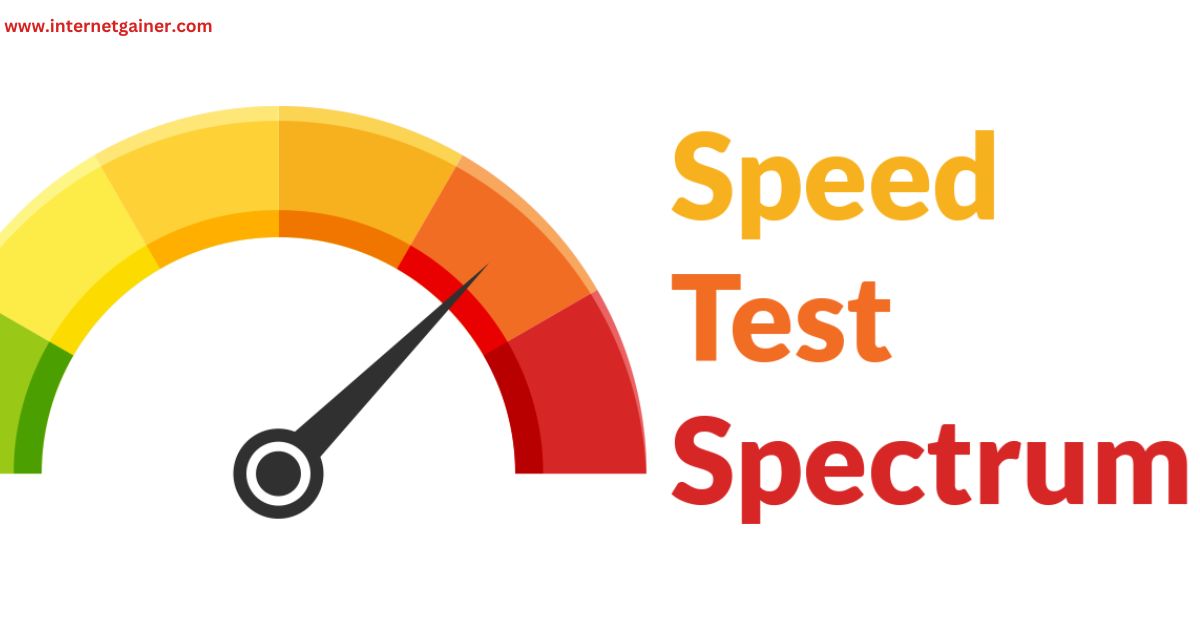Choose this topic
ToggleIntroduction
Experiencing slow internet speeds can be incredibly frustrating, especially when you’re paying for a premium package. If you’ve ever asked yourself, “Why is my Spectrum Internet slower than expected?”—you’re not alone.
Many users face this issue, and the reasons can range from minor technical glitches to larger systemic problems. In this blog, we’ll explore why this happens, provide actionable steps to troubleshoot the issue and suggest tools to optimize your internet experience.
Understanding Spectrum Internet Speed: Expectations vs. Reality
What You’re Paying For
Spectrum advertises high-speed internet plans with speeds ranging from 300 Mbps to 1 Gbps, depending on your package. These speeds are optimal under ideal conditions. However, what you experience depends on several factors, including:
- Network congestion
- Hardware limitations
- Physical location
- Data throttling or bandwidth caps (if applicable)
Top Reasons Your Spectrum Internet Might Be Slower Than Expected
1. Network Congestion
During peak usage times, such as evenings or weekends, the network might become congested. Spectrum’s shared infrastructure means multiple households in your area are drawing on the same resources.
2. Outdated Equipment
Your modem or router might not support the speeds promised by your plan. For instance, older devices may not handle gigabit speeds effectively.
3. Wi-Fi Interference
Physical barriers like walls, electronic devices, or even your neighbor’s Wi-Fi can interfere with your signal strength, reducing speeds.
4. Incorrect Configuration
Your router settings, such as channel selection or Quality of Service (QoS) prioritization, might not be optimized for your usage.
5. ISP Throttling
Although Spectrum claims it doesn’t throttle, some users report slower speeds after hitting high data usage. This could be a perception issue or related to network management practices.
6. Software and Malware
Background applications, updates, or malware on your devices could consume bandwidth, leaving less for your primary tasks.
7. Distance from the Node
If you’re located far from Spectrum’s nearest node, the signal strength could weaken, impacting speed.
Actionable Steps to Troubleshoot Spectrum Internet Issues
1. Check Your Internet Speed
Use tools like Speedtest by Ookla or Fast.com to measure your current speeds. Compare these results with your subscribed plan to identify discrepancies.
2. Restart Your Equipment
A simple restart of your modem and router can resolve temporary connectivity issues. Unplug them, wait 30 seconds, and plug them back in.
3. Optimize Your Router Placement
- Place your router in a central location, away from walls and obstructions.
- Elevate it on a shelf to avoid floor-level interference.
- Use a Wi-Fi analyzer app to find the least congested channel.
4. Upgrade Your Equipment
Ensure your modem and router are compatible with Spectrum’s latest speed tiers. Spectrum offers a list of approved devices on its website.
5. Use a Wired Connection
Ethernet connections provide more stable and faster speeds than Wi-Fi. Use a wired connection for high-bandwidth tasks like streaming or gaming.
6. Update Firmware and Drivers
Regularly update your router’s firmware and device network drivers to fix bugs and improve performance.
7. Contact Spectrum Support
If none of the above steps work, reach out to Spectrum’s technical support. They can run diagnostics on your line and resolve backend issues.
Tools to Improve Your Spectrum Internet Experience
- Wi-Fi Analyzer Apps
Tools like NetSpot or WiFi Analyzer can help you identify signal dead zones and optimize your network. - Mesh Wi-Fi Systems
For larger homes, consider investing in a mesh Wi-Fi system to ensure consistent coverage. - Bandwidth Monitoring Tools
Use apps like GlassWire to monitor which devices or apps are consuming the most bandwidth. - VPN Services
A VPN can sometimes bypass throttling or routing issues, but it may also slightly reduce speed.
FAQs
Why does my Spectrum internet slow down at night?
Network congestion during peak hours can cause slower speeds. This happens because many users in your area are online simultaneously.
How can I check if Spectrum is throttling my connection?
Use a VPN to test your speeds. If they improve significantly with a VPN, throttling may be a factor.
What is the ideal speed for streaming or gaming?
For streaming in HD, you’ll need at least 5 Mbps. For gaming, aim for a minimum of 25 Mbps for a seamless experience.
Can an outdated modem slow down my internet?
Yes, older modems may not support the full speed of your plan. Check with Spectrum for approved models.
Is Spectrum responsible for slow Wi-Fi speeds?
Wi-Fi issues often stem from local factors, such as interference or distance from the router, rather than Spectrum’s service itself.
Conclusion
Slow internet speeds are frustrating but often solvable with the right approach. By understanding the potential causes and implementing the actionable steps outlined above, you can significantly improve your Spectrum internet experience.
Consistently monitoring your setup, updating your equipment, and contacting support when needed ensures you get the best value for your investment. For more spectrum Internet information check the internetgainer.
Remember:
High-quality internet begins with informed decisions. Stay proactive, and enjoy seamless connectivity!
